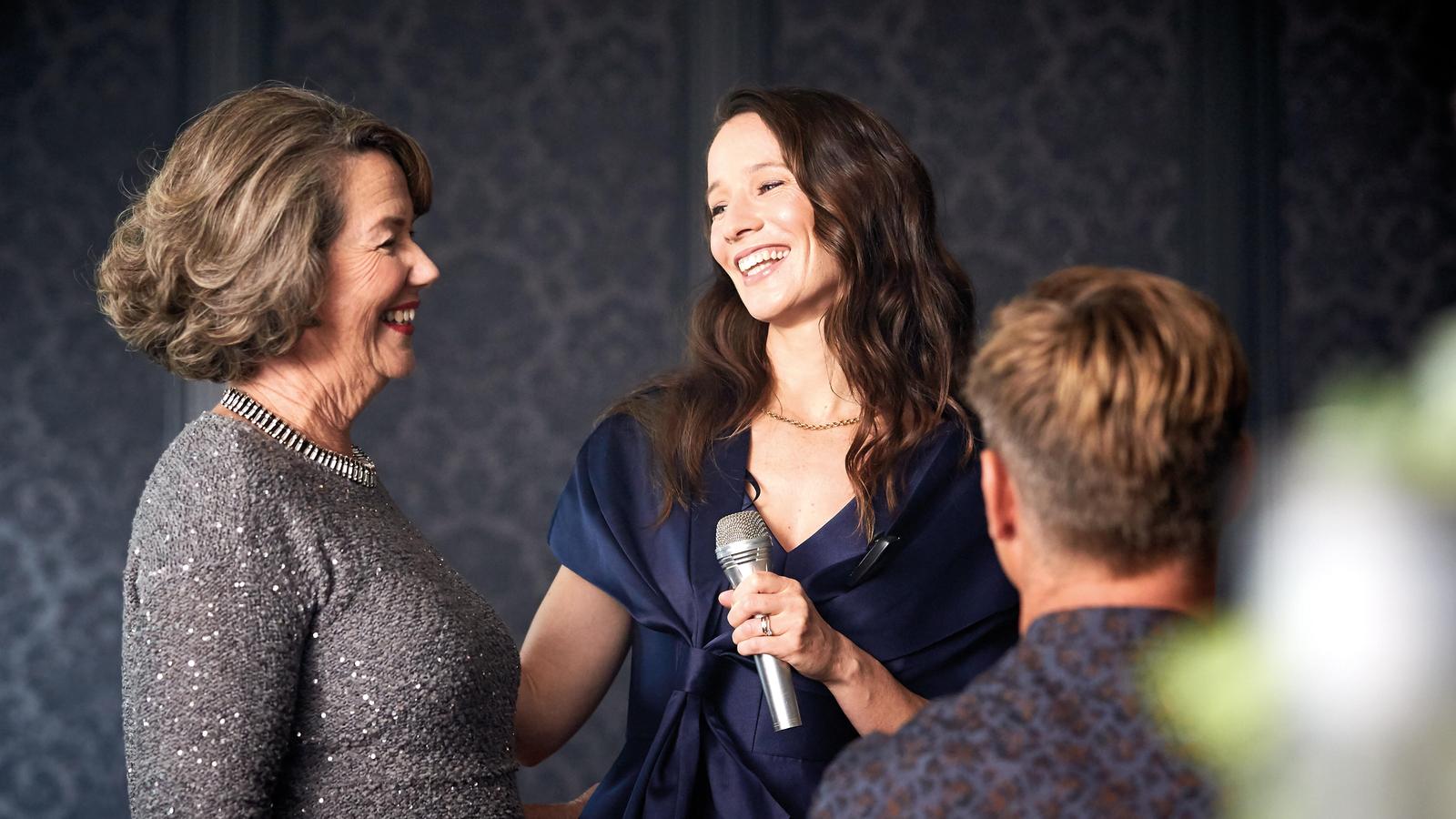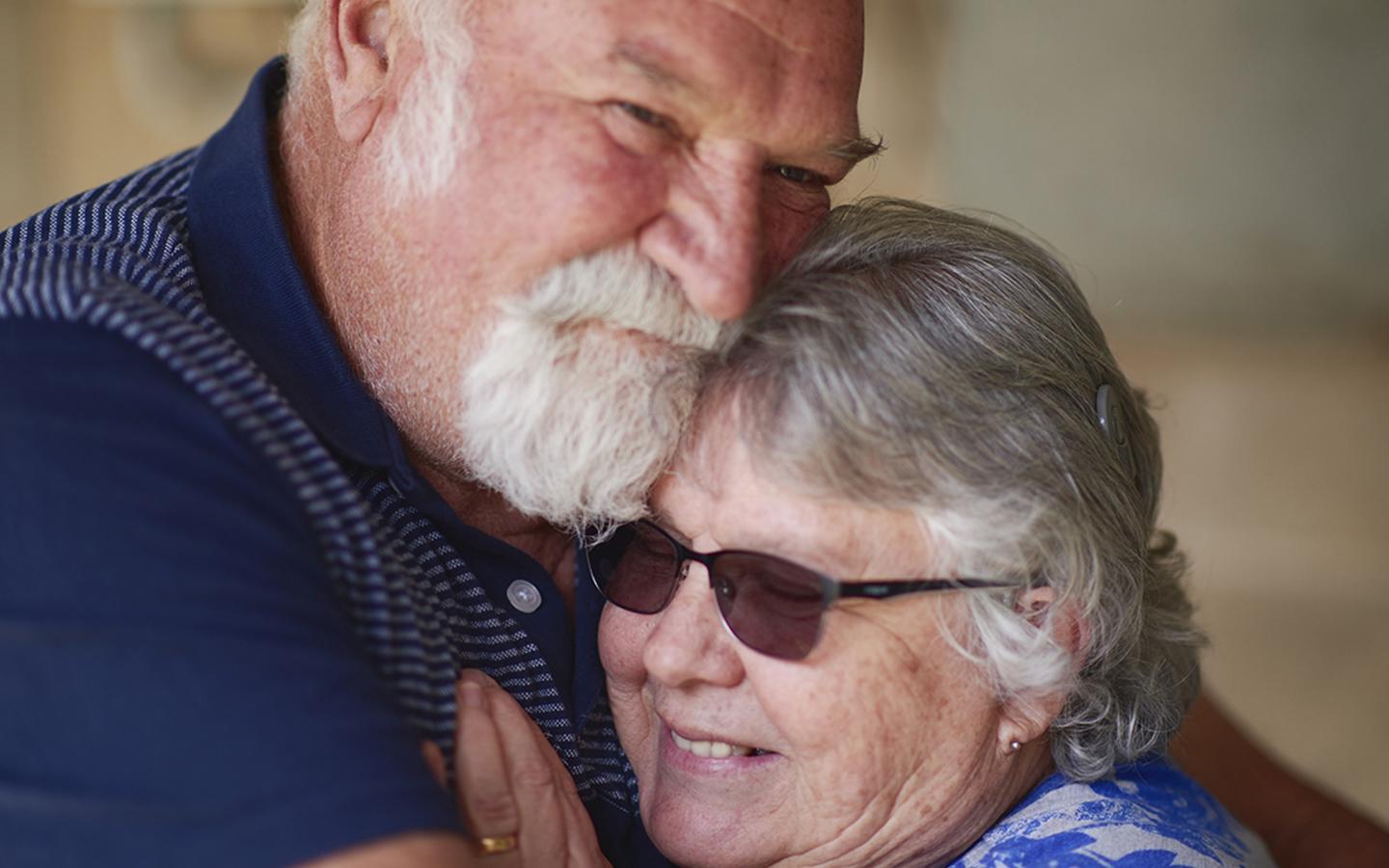Getting help for a loved one
Help your loved one take the first step towards resuming the life they love.

What you'll find on this page
- How you can support a loved one.
- How others have coped with a loved one's hearing loss.
- What you can do next.
The first step to helping a loved one
People with hearing loss often say they feel alone. It's hard, but it’s also hard for those who love them. Whether it's your wife, husband, parent or friend, it's painful to watch someone you care for shut themselves off from their world.
But it doesn't have to be that way.
Try talking to them about their hearing loss. There are options to improve hearing, even if hearing aids no longer help.
Research suggests a link between hearing loss and loneliness.1,2 That's why if you think your loved one has hearing loss, it's important they take action as soon as possible. Ignoring the signs can affect more than just their ability to hear.
"Anyone with a hearing loss will know and understand how hard it can be just trying to hear the simple things in life that many people take for granted. Knowing what I know now, there are hearing choices after your hearing aids are no longer enough or giving you little or no benefit... Thanks to Cochlear I can now hear better than I have ever heard before."
- Faye Y, Cochlear™ implant recipient
Taking the next step
A hearing health professional can talk to your loved one, test their hearing and help them find the right solutions for their needs.
Find a hearing specialist near you
Disclaimer
Please seek advice from your health professional about treatments for hearing loss. Outcomes may vary, and your health professional will advise you about the factors which could affect your outcome. Always follow the directions for use. Not all products are available in all countries. Please contact your local Cochlear representative for product information.
For a full list of Cochlear’s trademarks, please visit our Terms of Use page.
In Australia, Cochlear™ Nucleus® implant systems are intended for the treatment of moderately severe to profound hearing loss.
In Australia, Baha® bone conduction implant systems are intended for the treatment of moderate to profound hearing loss.
In Australia, the Cochlear™ Osia® System is indicated for patients with conductive, mixed hearing loss and single-sided sensorineural deafness (SSD) aged 5 years and above with up to 55 decibels sensorineural hearing loss. Patients should have sufficient bone quality and quantity to support successful implant placement. Surgery is required to use this product. Any surgical procedure carries risk.
For Cochlear™ Nucleus®, Osia® and Baha® systems: This product is not available for purchase by the general public. For information on funding and reimbursement please contact your health care professional.
Any testimonial featured on this website is intended for an Australian audience only.
References
- Contrera K, Sung Y, Betz J, Li L, Lin F. Change in loneliness after intervention with cochlear implants or hearing aids. The Laryngoscope. 2017;127(8):1885-1889.
- Rutherford B, Brewster K, Golub J, Kim A, Roose S. Sensation and Psychiatry: Linking Age-Related Hearing Loss to Late-Life Depression and Cognitive Decline. American Journal of Psychiatry. 2018;175(3):215-224.






